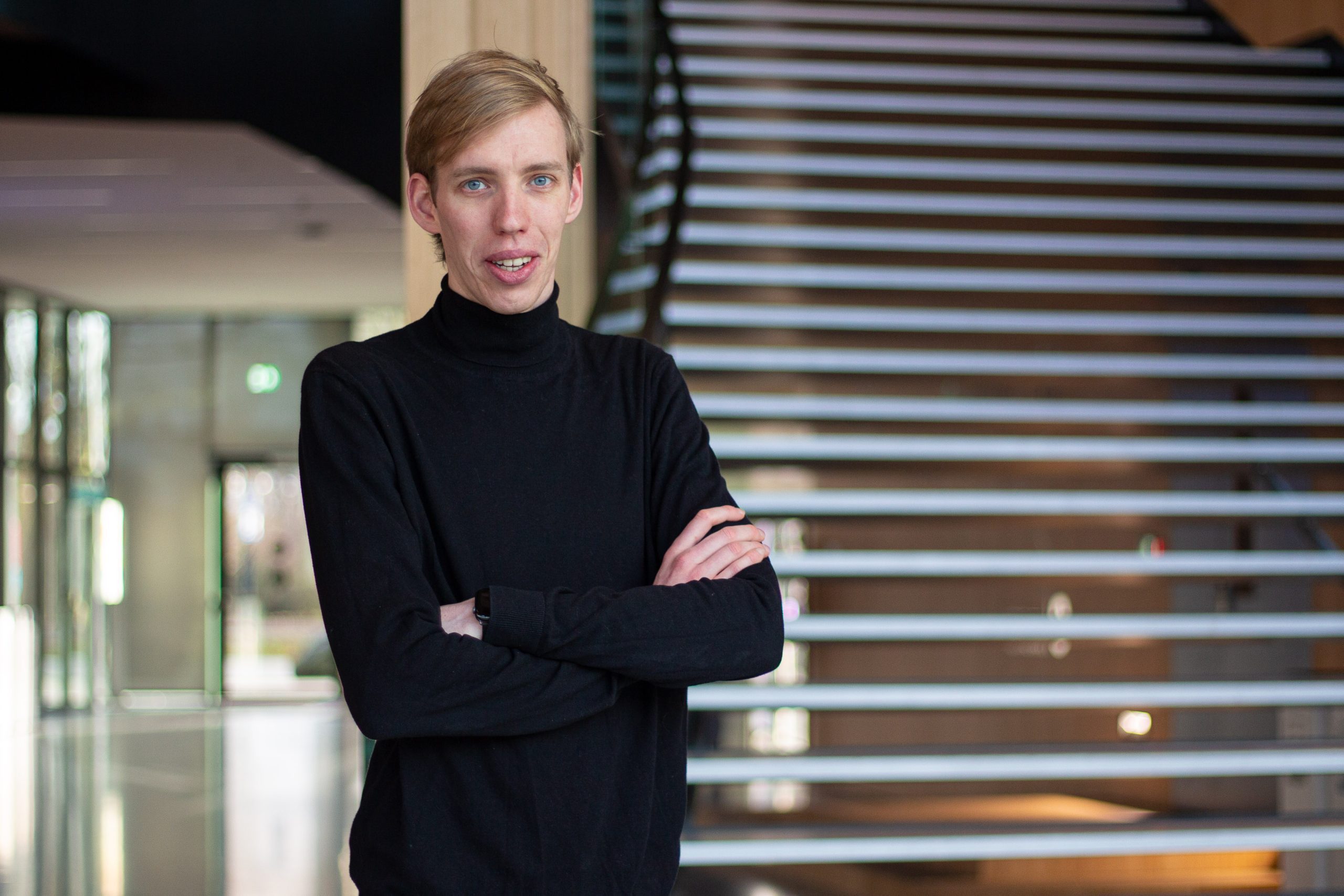CEG student Harold van Heukelum not only did two masters at the same time, he also graduated with a 10. How did he do it and does he have any tips?
Harold van Heukelum: “Don’t take the first topic that comes your way, but go for what really interests you." (Photo: Justyna Botor)
Harold van Heukelum studied both Offshore and Dredging Engineering and Construction Management and Engineering (Faculty of Civil Engineering and Geosciences/CEG). In almost four years he earned 194.5 credits, averaging an 8.1.
At the beginning he also worked on top of studying. He found distraction important. “The Reformed Church in Delft was undergoing a renovation. I helped with the installation activities a few evenings in the week. It was a nice change.”
Doing two masters at the same time is an exception at Dutch universities. Figures from DUO show that in 2019, about 4.7% of all students earned a double master’s degree. At TU Delft some masters combinations are commonplace, such as Life Science and Technology (AS) and Management of Technology (TPM). The students put together a programme themselves and have it approved. “I was able to do one joint thesis,” says Van Heukelum. “That made a difference.”
Even rarer is earning a 10 for your Master’s thesis. In the last academic year, only one person among the 49 students who did two masters simultaneously at TU Delft earned a 10. This year Van Heukelum is the first.
He designed a model that uses data to support the decisions made in projects and tenders in the offshore and dredging industries. “Normally, the project decisions are based on areas that are hard to evaluate objectively. These could be noise levels or costs related to the quality of a project, for example.”
He says that there are models that help weigh up the issues objectively. “But they do not cover everything so I programmed a new computer model.”
I could talk to the PhD candidates in the group at the right level
Why was his subject worth a 10? “It’s mostly because of the degree in which I could control the design. When I started, there was only one paper that had been published on this subject.” So he and the subject-related group in which he was doing his research for Boskalis, the company that commissioned the work, had to design a model himself. “I could talk to the PhD candidates in the group at the right level.”
In the meantime, Van Heukelum has got a job at Boskalis. “And I am working with TU Delft to see if we can start a Doctoral Programme.”
For students who also want a 10, Van Heukelum has some tips. “First ask teachers for interesting topics rather than going straight to companies. And don’t take the first topic that comes your way, but go for what really interests you. I think this helped me. I remained very interested right to the end.”
Do you have a question or comment about this article?
K.S.vanderWal@tudelft.nl


Comments are closed.